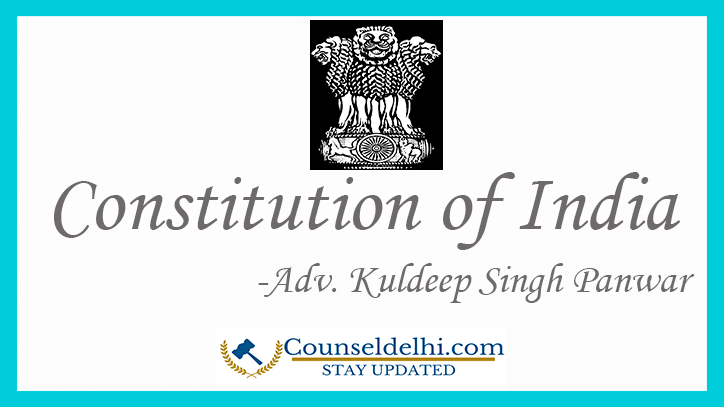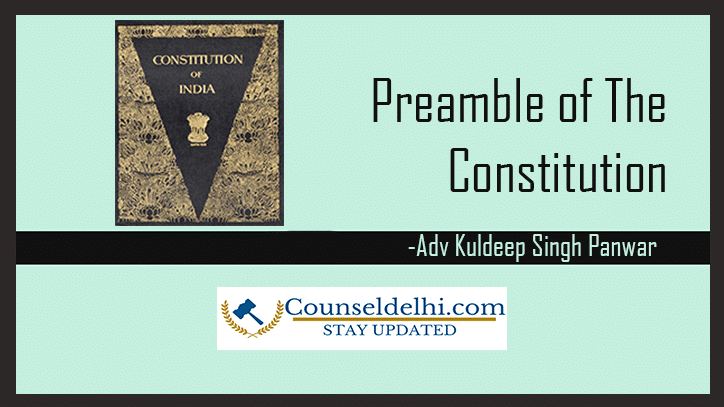Question : The United Kingdom’s Approach to European Unity in the Post-War Period
युद्धोत्तर काल में यूरोपीय एकता के प्रति यूनाइटेड किंगडम का दृष्टिकोण
Introduction
परिचय
The historical relationship between the United Kingdom and the question of European unity has been intricate, evolving significantly in the post-war era. This analysis explores the UK’s approach to European unity, particularly focusing on the aftermath of World War II and the factors that have influenced its stance.
यूनाइटेड किंगडम और यूरोपीय एकता के सवाल के बीच ऐतिहासिक संबंध जटिल रहा है, जो युद्ध के बाद के युग में महत्वपूर्ण रूप से विकसित हुआ है। यह विश्लेषण यूरोपीय एकता के प्रति ब्रिटेन के दृष्टिकोण की पड़ताल करता है, विशेष रूप से द्वितीय विश्व युद्ध के परिणामों और इसके रुख को प्रभावित करने वाले कारकों पर ध्यान केंद्रित करता है।
Historical Context: Pre- and Post-War Perspectives
ऐतिहासिक संदर्भ: युद्ध पूर्व और युद्धोत्तर परिप्रेक्ष्य
Pre-War Views of Europe
यूरोप के युद्ध-पूर्व दृश्य
Before World War II, the United Kingdom maintained a certain degree of detachment from continental affairs, often referred to as the “splendid isolation” approach. This strategy reflected a preference for global engagements over active involvement in European matters.
द्वितीय विश्व युद्ध से पहले, यूनाइटेड किंगडम ने महाद्वीपीय मामलों से कुछ हद तक अलगाव बनाए रखा था, जिसे अक्सर “शानदार अलगाव” दृष्टिकोण के रूप में जाना जाता है। यह रणनीति यूरोपीय मामलों में सक्रिय भागीदारी की तुलना में वैश्विक भागीदारी को प्राथमिकता देती है।
Post-War Realities and Emergence of European Unity
युद्धोत्तर वास्तविकताएँ और यूरोपीय एकता का उद्भव
The devastation caused by World War II prompted a reevaluation of international relations. European nations sought cooperation to prevent future conflicts, laying the groundwork for the European integration project.
द्वितीय विश्व युद्ध के कारण हुई तबाही ने अंतर्राष्ट्रीय संबंधों के पुनर्मूल्यांकन को प्रेरित किया। यूरोपीय देशों ने यूरोपीय एकीकरण परियोजना के लिए आधार तैयार करते हुए भविष्य के संघर्षों को रोकने के लिए सहयोग मांगा।
Early Post-War Period: The United Kingdom and the European Movement
प्रारंभिक युद्धोत्तर अवधि: यूनाइटेड किंगडम और यूरोपीय आंदोलन
European Movement and the UK’s Initial Engagement
यूरोपीय आंदोलन और यूके की प्रारंभिक भागीदारी
In the post-war period, the European Movement gained traction as a transnational effort to foster unity. The UK, recognizing the need for collective security and economic cooperation, initially expressed interest in these initiatives.
युद्ध के बाद की अवधि में, एकता को बढ़ावा देने के एक अंतरराष्ट्रीय प्रयास के रूप में यूरोपीय आंदोलन ने जोर पकड़ लिया। यूके ने सामूहिक सुरक्षा और आर्थिक सहयोग की आवश्यकता को पहचानते हुए शुरू में इन पहलों में रुचि व्यक्त की।
Winston Churchill’s Vision
विंस्टन चर्चिल का दृष्टिकोण
Winston Churchill, in his influential Zurich speech in 1946, envisioned a united Europe to prevent catastrophic conflicts. While he acknowledged the UK’s role as a friend and sponsor, he did not advocate for full integration, instead proposing a partnership with a united Europe.
विंस्टन चर्चिल ने 1946 में अपने प्रभावशाली ज्यूरिख भाषण में विनाशकारी संघर्षों को रोकने के लिए एकजुट यूरोप की कल्पना की थी। हालाँकि उन्होंने एक मित्र और प्रायोजक के रूप में यूके की भूमिका को स्वीकार किया, लेकिन उन्होंने पूर्ण एकीकरण की वकालत नहीं की, इसके बजाय एकजुट यूरोप के साथ साझेदारी का प्रस्ताव रखा।
Changing Dynamics: Economic Considerations and the EEC
बदलती गतिशीलता: आर्थिक विचार और ईईसी
Economic Realities and the EEC Application
आर्थिक वास्तविकताएँ और ईईसी अनुप्रयोग
Evolving economic circumstances led the UK to reassess its stance. In 1961, the UK applied to join the European Economic Community (EEC), recognizing the economic advantages of integration.
उभरती आर्थिक परिस्थितियों ने ब्रिटेन को अपने रुख का पुनर्मूल्यांकन करने के लिए प्रेरित किया। 1961 में, यूके ने एकीकरण के आर्थिक लाभों को पहचानते हुए यूरोपीय आर्थिक समुदाय (ईईसी) में शामिल होने के लिए आवेदन किया।
De Gaulle’s Vetoes and the UK’s Struggle for Membership
डी गॉल के वीटो और सदस्यता के लिए ब्रिटेन का संघर्ष
Charles de Gaulle’s vetoes in the 1960s posed significant challenges to the UK’s EEC aspirations. Despite persistent efforts, the UK faced setbacks, underscoring the complexities and tensions surrounding European unity.
1960 के दशक में चार्ल्स डी गॉल के वीटो ने यूके की ईईसी आकांक्षाओं के लिए महत्वपूर्ण चुनौतियां पेश कीं। लगातार प्रयासों के बावजूद, ब्रिटेन को असफलताओं का सामना करना पड़ा, जिससे यूरोपीय एकता को लेकर जटिलताएँ और तनाव उजागर हो गए।
1970s: UK’s Entry into the EEC and Subsequent Developments
1970 का दशक: ईईसी में यूके का प्रवेश और उसके बाद के विकास
Successful Entry into the EEC
ईईसी में सफल प्रवेश
Overcoming past obstacles, the UK finally gained entry into the EEC in 1973. This marked a significant shift in its approach, emphasizing the importance of economic cooperation for national prosperity.
पिछली बाधाओं को पार करते हुए, यूके ने अंततः 1973 में ईईसी में प्रवेश प्राप्त किया। इसने राष्ट्रीय समृद्धि के लिए आर्थिक सहयोग के महत्व पर जोर देते हुए, इसके दृष्टिकोण में एक महत्वपूर्ण बदलाव को चिह्नित किया।
Challenges and Referendum of 1975
चुनौतियाँ और 1975 का जनमत संग्रह
Despite EEC membership, challenges persisted. In 1975, the UK held a referendum to gauge public opinion on continued membership, reflecting the ongoing debate surrounding the nation’s relationship with Europe.
ईईसी सदस्यता के बावजूद, चुनौतियाँ बनी रहीं। 1975 में, यूके ने निरंतर सदस्यता पर जनता की राय जानने के लिए एक जनमत संग्रह आयोजित किया, जो यूरोप के साथ देश के संबंधों को लेकर चल रही बहस को दर्शाता है।
Post-Cold War Era: Maastricht and Euroscepticism
शीत युद्ध के बाद का युग: मास्ट्रिच और यूरोसेप्टिसिज्म
Maastricht Treaty and the EU Formation
मास्ट्रिच संधि और यूरोपीय संघ का गठन
The end of the Cold War ushered in a new era of European integration, marked by the Maastricht Treaty in 1992, which formally established the European Union (EU). The UK, however, adopted a cautious approach, opting out of certain aspects such as the Eurozone and the Social Chapter.
शीत युद्ध की समाप्ति से यूरोपीय एकीकरण के एक नए युग की शुरुआत हुई, जिसे 1992 में मास्ट्रिच संधि द्वारा चिह्नित किया गया, जिसने औपचारिक रूप से यूरोपीय संघ (ईयू) की स्थापना की। हालाँकि, यूके ने यूरोज़ोन और सोशल चैप्टर जैसे कुछ पहलुओं से बाहर निकलते हुए सतर्क रुख अपनाया।
Rise of Euroscepticism in the UK
ब्रिटेन में यूरोसंशयवाद का उदय
Euroscepticism gained prominence in the UK, fueled by concerns about national sovereignty, immigration, and perceived democratic deficits within EU institutions. This sentiment influenced political discourse and policy decisions in subsequent years.
राष्ट्रीय संप्रभुता, आप्रवासन और यूरोपीय संघ संस्थानों के भीतर कथित लोकतांत्रिक घाटे के बारे में चिंताओं के कारण ब्रिटेन में यूरोसंशयवाद को प्रमुखता मिली। इस भावना ने बाद के वर्षों में राजनीतिक विमर्श और नीतिगत निर्णयों को प्रभावित किया।
Conclusion
निष्कर्ष
In conclusion, the United Kingdom’s approach to European unity in the post-war period has been nuanced, influenced by historical, economic, and political dynamics. From initial engagements in the European movement to the complexities of EEC membership and the rise of Euroscepticism, the UK’s relationship with European unity reflects a multifaceted evolution shaped by internal and external factors. Understanding this historical trajectory is essential for comprehending the intricate dynamics of the UK’s position in the broader context of European integration.
निष्कर्ष में, युद्ध के बाद की अवधि में यूरोपीय एकता के लिए यूनाइटेड किंगडम का दृष्टिकोण ऐतिहासिक, आर्थिक और राजनीतिक गतिशीलता से प्रभावित होकर सूक्ष्म रहा है। यूरोपीय आंदोलन में शुरुआती व्यस्तताओं से लेकर ईईसी सदस्यता की जटिलताओं और यूरोसेप्टिसिज्म के उदय तक, यूरोपीय एकता के साथ यूके का संबंध आंतरिक और बाहरी कारकों द्वारा आकारित एक बहुमुखी विकास को दर्शाता है। यूरोपीय एकीकरण के व्यापक संदर्भ में यूके की स्थिति की जटिल गतिशीलता को समझने के लिए इस ऐतिहासिक प्रक्षेपवक्र को समझना आवश्यक है।



